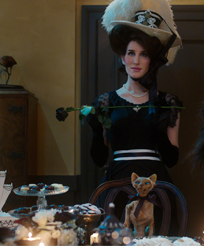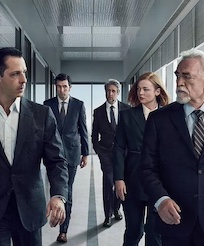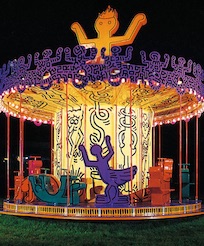Last Thursday evening, billionaire Joe Ricketts pulled the plug on Gothamist and DNAinfo, two bastions of local New York reportage, soon after his employees voted to unionize. That Friday, Disney blacklisted critics from the LA Times following a series of stories that ran in September about the corporation’s dubious strong-arm tactics with the city of Anaheim (after a boycott from other outlets, Disney has now reinstated them). Yesterday, Ronan Farrow dropped another groundbreaking article on the Harvey Weinstein scandal in The New Yorker, detailing a network of private investigators, lawyers and journalists who systematically attempted to stifle reports of his myriad wrongdoings. And, oh yeah, it was also revealed that Taylor Swift had filed a cease and desist letter against PopFront, a leftist blog with a marginal following that published a specious piece deriding Swift as tacitly sympathetic to Neo-Nazis and white supremacists.
These cases are vastly different, but there’s a glaring commonality: rich people wielding their power (read: money) in attempts to suppress voices of opposition. At a point in time when the President has made it his mission to discredit the press, going so far as to expand libel laws, revoke licenses (which do not exist) and send the justice department after journalists, this has begun to feel uncomfortably routine.
There's an urge, then, to lump Swift’s defamation suit in with the more overtly quote-unquote “fascistic” indiscretions of the administration, Weinstein, Ricketts and Disney. The ACLU, which is defending the Swift article’s author, calls the article a “mix of political speech and critical commentary,” and therefore constitutionally protected. I’m inclined to agree. The post falls more under the category of a heavily biased—if not foolhardy—exegesis than a proposed statement of fact. One way to look at the suit is as yet another threat to the free press; someone in power using her power to intimidate someone who, in this case, has all the power and influence of any other blog boasting just over 100 Twitter followers. This is not an unfair assessment, although it may prove unkind. Because while the legal action itself may have suppressive consequences, the substance of the suit itself does quite the opposite—it protects Swift’s right to keep her political opinion to herself.
Some time ago, in the wake of the first large-scale #takeaknee protests, I wrote about the vapidity of “staying in your lane.” In a country where a reality TV star is President, I argued, anyone can be political, as long as we treat their opinions with a proportionate level of scrutiny. By that same token, though, it can’t be overstated that anyone can also be apolitical. We should not treat a pop star’s political statements with the same level of seriousness as we do a politician’s; pop stars, lest we forget, don’t have access to the nuclear codes. And to take that logic a step further, we should not force our pop stars (or anyone) to share their political opinions. Pop stars have a right to their political views just like anyone else—and they have the right to share them with the public or keep them private just like anyone else, too.
It’s stating the obvious to say we live in a more polarized political climate than ever—one in which everyone is called on to proclaim their side. If the Obama years established the Us vs. Them paradigm, the Trump administration has, with slander and conspiracy theories, elevated it to a high-falutin battle of Good vs. Evil. To live in America today is to be for or against Trump; for or against climate change relief; for or against gun legislation; for or against Fox News.
One unintended consequence of this deafening rhetoric, on both the left and the right (and in this instance, it’s the left), is that we as a culture don’t know what to do with silence—particularly that of a public figure such as Taylor Swift. Swift’s refusal to take sides in a debate where there is no safe middle ground becomes license for writers, like the one on PopFront, to interpret her silence as they see fit. It is human nature to feel uncomfortable with uncertainty; much easier, then, to throw that globular piece of uncertainty into the proverbial kiln, fire it up and have it come out as something definitive.
To be fair, the clamoring for a political stance from Swift, and other public figures, is understandable. Personally, I think we should take sides. I think Taylor Swift should use her influence to denounce Trump, if that’s what she truly believes (and if her cease and desist letter is any indication, it is). But it’s not my place to litigate whether someone chooses to remain silent—especially if that person is an artist, creating art she (presumably) hopes to be resolutely apolitical, or she lacks well or fully-formed political opinions she feels are worth sharing at all.
Swift’s mistake here was in going out of her way to draw attention to a radical article that would have otherwise been quickly forgotten by the few who read it in the first place. But that doesn’t negate her right to keep to herself. And those who profess to stand for free and protected speech should, if not champion, then at least acknowledge Swift’s right to defend her silence against those who would take it and weaponize it to suggest she was a white supremacist.













